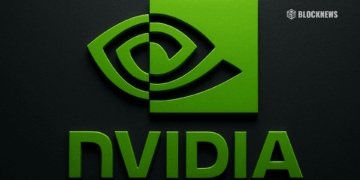- Several decentralized messaging apps such as TrueConf and Matrix emerge as significant players, prioritizing user privacy and data ownership.
- While blockchain is known for financial transactions, its potential in secure communication is immense.
- Decentralized messaging platforms could introduce the general public to the world of Web3 without the need for cryptocurrency purchases.
In the dynamic world of communication apps, decentralized social media platforms are making waves with unfiltered, open-source platforms, prioritizing user safety and returning data ownership rights to its users. Such names include TrueConf, Matrix, and Wickr.
Many associate blockchain primarily with financial transactions due to the rise of Bitcoin and the growing trend of decentralized finance (DeFi). Yet, the versatility of blockchain technology extends far beyond just finance. It holds promise for any industry driven by data where safety and confidentiality are of the essence.
Financial institutions worldwide, including renowned names like the International Monetary Fund and the Bank for International Settlements, have recognized the transformative potential of blockchain. But there’s another domain desperate for enhanced safety and a decentralized approach – the realm of communication.
Popular messaging platforms like WhatsApp, Viber, and Telegram, operate on centralized servers. This centralized structure exposes them to risks like potential hacks. Such vulnerabilities can compromise user data, as seen in 2021 when Facebook (currently known as Meta) faced a data breach impacting around 500 million users whose information was leaked online.
Though these messaging platforms employ top-notch encryption techniques, the inherent risk lies in their centralized foundation. Users are expected to place trust in these platforms by sharing personal details like names, phone numbers, and sometimes even banking information.
The emergence of decentralized messaging platforms promises not only heightened security and privacy for users but also hands them more authority over their data. Such platforms present a golden opportunity for blockchain technology to showcase its relevance and benefits to a broader audience. Capturing the attention of those outside the tech-centric cryptocurrency circle remains a challenge for blockchain. And communication might be the perfect avenue to bridge that gap.
In the past, championing the advantages of decentralized, peer-to-peer communication was challenging. People usually preferred platforms offering the best user experience. However, with the increasing number of cryptocurrency users today, the merits of a system resistant to censorship become more evident. This shift means that everyday users might soon embrace decentralized messaging platforms and delve into the Web3 domain without the primary objective of financial gains or the need to purchase tokens.
Insights on Decentralized Messaging’s Rise
The communication sector’s shift towards decentralized messaging platforms reflects the broader transition to a more user-centric digital ecosystem. People are becoming increasingly conscious of their digital footprints, and platforms that offer enhanced security and data ownership rights are bound to gain traction.
Blockchain, previously pigeonholed into the financial category, is showcasing its vast, untapped potential. As this technology becomes more integrated into daily communication tools, it could act as a gateway for the average user to understand and immerse themselves in the expansive world of Web3. The fusion of communication and blockchain might be the key to ushering in a new era of digital interaction.














